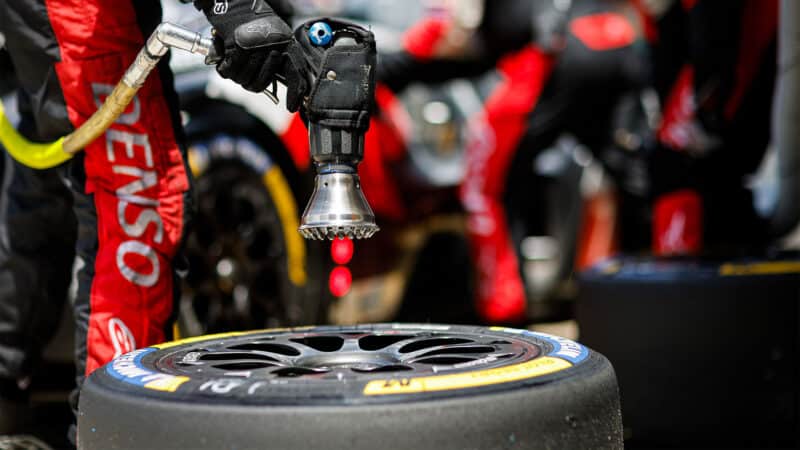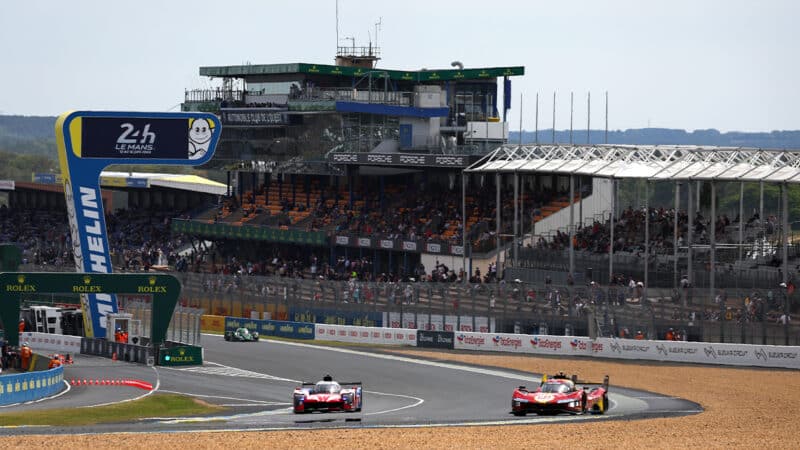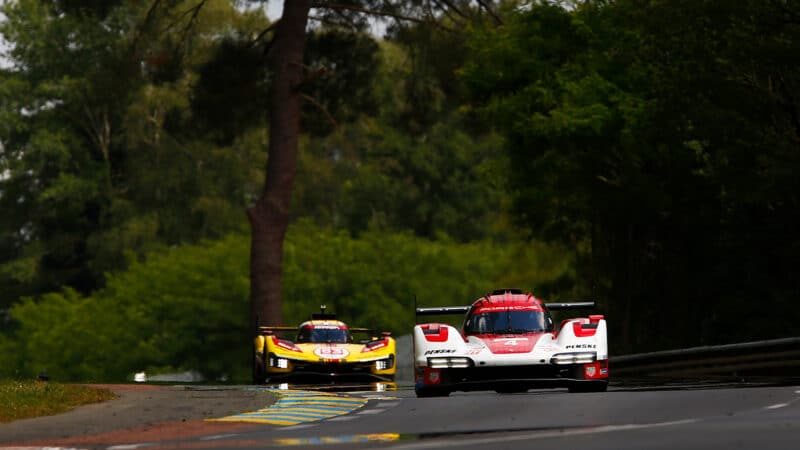“It’s quite a difficult question to answer, there are many things that come into play,” he says.
“Of course, you want to maximise your out-lap performance because that’s where you can lose or win a lot of time – we’re talking about being 20-30 seconds off the pace compared to a normal push lap with hot tyre.
“We all struggle, and we of course want to push, but also don’t want to put too much stress on the tyre, because if we try too much and we hit the kerbs on your first lap, that can damage the tyre. The first few laps really decides how much the tyre is going to deteriorate in the course of double, triple or quadruple stint.
“Over a long term, it could potentially increase the risk of having a failure or having a puncture. It’s always a fine balance.”
What the Le Mans drivers and teams say about the tyre ban
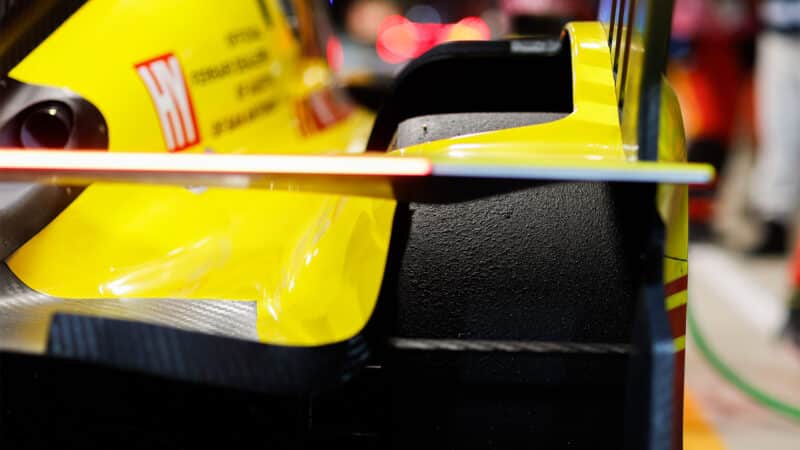
Ferrari’s Chinese driver emphasises importance of looking after Michelins in early laps
DPPI
Antonio Fuoco crashed heavily when leaving the pits on cold Michelins at Spa last year, and his team-mate Alessandro Pier Guidi has said that despite Ferrari’s ability to fire up the tyres for one-lap pace, it’s still a situation Ferrari is uncomfortable with.
“In my opinion, it is a bad choice, unsafe and not useful at all, so it is not positive,” Pier Guidi told Autosport. “I don’t think it’s an advantage, despite the fact that we have shown that we are among those who warm the tyres better, so it could also work in our favour.
“You risk very serious accidents and I don’t think it adds anything to the competition.”
His team-mate Miguel Molina has added another dissenting voice to the FIA ruling, fearing the sizeable impacts that could occur on the Mulsanne and elsewhere.
“This is something we are concerned about,” Molina said. “We have seen in the past that it is not easy and we will have to be very careful because there is a risk of losing the race right away. In my opinion, we should reconsider because then the safety is not 100% there.”
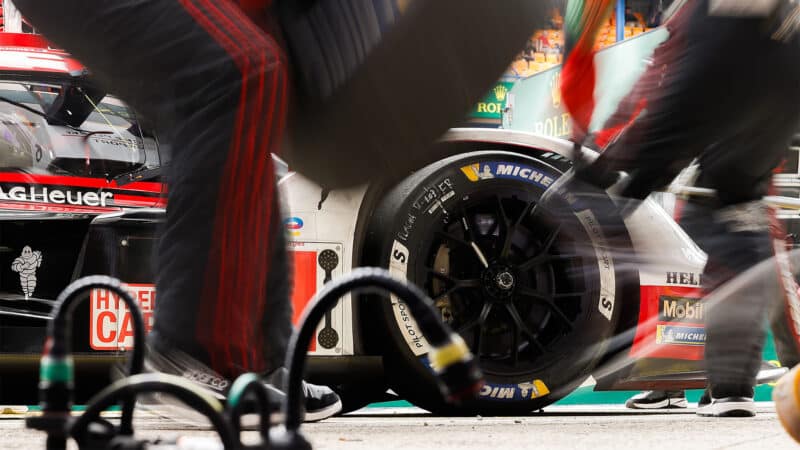
Porsche team appears to be a dab hand at turning its tyres on
DPPI
Ferrari Hypercar boss Antonello Coletta also the result of sports car racing’s biggest event could be highly influenced by Michelin matters, but says the time lost would be less than Yifei Ye forecasts.
“In past races, we have already seen that someone has been very good at warming their tyres and on a track like this, we lose over 15sec when we go out on cold tyres,” Coletta said. “It is important for the organisers to control the temperatures [of the tyres] when they go on the cars – the rules must be respected.
I don’t want the Le Mans 24 Hours to be decided on the warm-up of the tyres in the night or other difficult conditions.”
Porsche could be a beneficiary of the change, as it has been able to warm its tyres faster than rivals in previous races. Unsurprisingly, it is in favour of the change.
